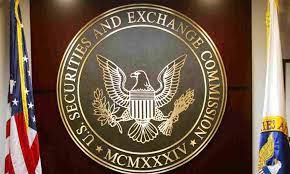The United States’ (US’) Securities and Exchange Commission (SEC) has announced charges against nine investment advisers and three broker-dealers for failures by the firms and their personnel to maintain and preserve electronic communications, in violation of recordkeeping provisions of the federal securities laws.
The SEC, in a statement on Monday, disclosed that the firms admitted the facts set forth in their respective SEC orders, acknowledged that their conduct violated recordkeeping provisions of the federal securities laws, agreed to pay combined civil penalties of $63.1 million, and have begun implementing improvements to their compliance policies and procedures to address these violations.
According to the capital market regulator, one of the firms, PJT Partners LP, self-reported its violations and, as a result, will pay significantly lower civil penalties than it would have otherwise.
The defaulting firms include Blackstone Alternative Credit Advisors LP, together with Blackstone Management Partners L.L.C. and Blackstone Real Estate Advisors L.P., agreed to pay a combined $12 million penalty; Kohlberg Kravis Roberts & Co. L.P. agreed to pay a $11 million penalty; Charles Schwab & Co., Inc. agreed to pay a $10 million penalty; and Apollo Capital Management L.P. agreed to pay a $8.5 million penalty.
Others are Carlyle Investment Management L.L.C., together with Carlyle Global Credit Investment Management L.L.C., and AlpInvest Partners B.V., agreed to pay a combined $8.5 million penalty; TPG Capital Advisors LLC agreed to pay an $8.5 million penalty; Santander US Capital Markets LLC agreed to pay a $4 million penalty; and PJT Partners LP, which agreed to pay a $600,000 penalty.
Commenting on the commission’s position on the fraudulent discoveries and the imposed penalties on the firms, Acting Director of the SEC’s Division of Enforcement, Sanjay Wadhwa, said: “In order to effectively carry out their oversight responsibilities, the Commission’s Examinations and Enforcement Divisions must, and indeed do, rely heavily on registrants complying with the books and records requirements of the federal securities laws. When firms fall short of those obligations, the consequences go far beyond deficient document productions; such failures implicate the transparency and the integrity of the markets and their participants, like the firms at issue here.
“In today’s actions, while holding firms responsible for their recordkeeping failures, the Commission once more recognized and credited a registrant’s self-report, demonstrating yet again that there are tangible benefits to be gained from proactive cooperation”, Wadhwa added.
The SEC findings showed that each of its investigations uncovered the use of unapproved communication methods, known as off-channel communications, at these firms, and that as described in the SEC’s orders, the firms admitted that, during the relevant periods, their personnel sent and received off-channel communications that were records required to be maintained under the securities laws.
The failures involved personnel at multiple levels of authority, including supervisors and senior managers.
Following the findings by the commission, the firms were each charged with violating certain recordkeeping provisions of the Investment Advisers Act or the Securities Exchange Act and each of them also charged with failing to reasonably supervise their personnel with a view to preventing and detecting those violations.
In addition to the significant financial penalties, each of the firms was ordered to cease and desist from future violations of the relevant recordkeeping provisions and was censured.






